The 1983/84 was a season to behold for Joe Fagan in his first as Liverpool manager, securing an unprecedented treble.
“When I was appointed manager of Liverpool Football Club, it was inevitable that people should pose the question: ‘How can he follow Bob Paisley?’”
Fagan had voiced what many had asked as Paisley passed on his duties of Liverpool manager to his assistant after nine trophy-laden seasons which returned 20 trophies – 14 of which were major honours.
And he, of course, left big shoes to fill, but despite initially being resistant to succeed his fellow Boot Room member in the dugout, Fagan’s transition was seamless.
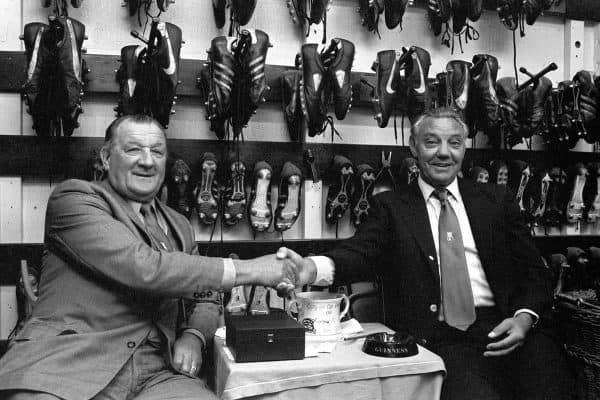
“In my book, each new season should always provide a fresh impetus, no matter what has gone before. There is a new challenge; there are old rivals trying to put one across you, and there is always the task of coping with new demands.”
For Fagan, those demands were to follow on from a campaign which secured Liverpool’s 14th league title and the League Cup and he did it his way.
Roy Evans, who first encountered Fagan as an apprentice and would later serve as a member of the Boot Room and a key member during his years in charge, said of the season:
“The cynics said he’d simply inherited the treble-winning team from Bob Paisley. That he had the easiest job in football.
“What a load of rubbish…It was typical of Joe that he answered his critics in the best possible fashion.”
The 1983/84 season is one which could easily be justified as Liverpool’s finest.
While many assumed stepping in to take the reins of a well-oiled machine would need nothing more than some maintenance, Fagan’s task was anything but straightforward.
Regular members of the first-team were waning, while there was a cause for concern for complacency kicking in after the Reds had strolled to the title in the previous campaign.
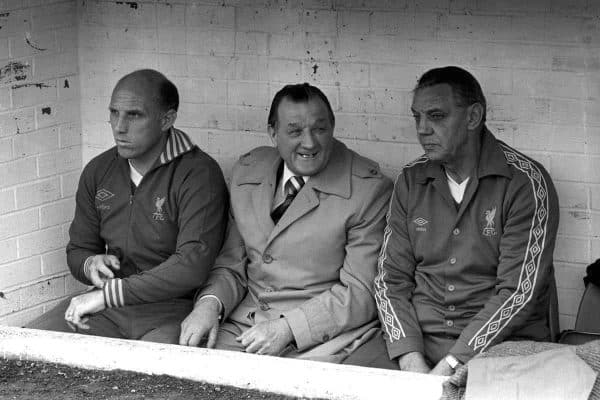
Fagan would deploy a three-man attack in a side which played with a “cool, calculating efficiency,” one which defied suggestions that the Reds lacked imagination.
In the league, the Reds would go on to finish the season with 80 points, after clinching 22 wins and six losses, three ahead of Southampton.
Ian Rush went on to win the Golden Boot in a campaign which saw the Reds net 73 in total, with the Welshman laying claim to 32 of those.
The top-flight was not all smooth sailing for Liverpool, with a shock 4-0 defeat at Coventry City proving to be their lowest moment as they then stumbled to the finish line.
But Fagan’s men ultimately got the job done when it was needed as they continued to fight on two other fronts.
While the Reds secured the title in May, the first piece of silverware came in the Milk Cup, widely known as the League Cup, as old foes Everton were toppled at Maine Road in the final replay in March after the initial clash had ended 0-0 at Wembley.
Then there was the matter of ending the season with an unprecedented treble by clinching the club’s fourth European Cup.
Rome was the destination after four other teams were conquered on the way to the final, with seven wins and one draw to their name as they lined up opposite the stadium’s rightful owners.
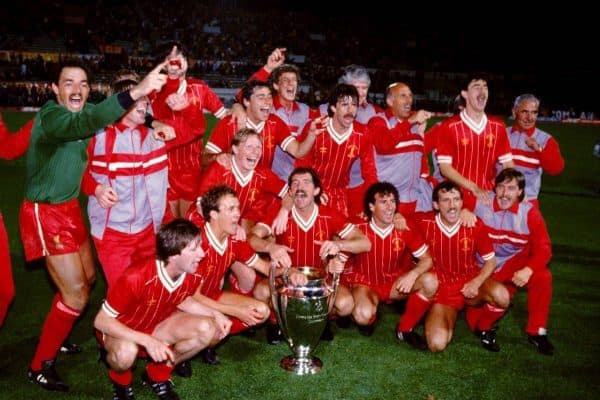
A tense and daunting challenge would await as the game was taken to penalties with Bruce Grobbelaar’s ‘spaghetti legs’ taking centre stage as the Reds prevailed in glorious circumstances, which we will cover in-depth later in the series.
A historic treble was secured in his first season and while a modest and unassuming man, he remains one of the most respected figures in the game.
Fagan joined Liverpool as a coach in 1958 and would remain an ever-present at Anfield until 1985, with his last game in charge coming in the 1985 European Cup final which was the scene of the Heysel Stadium disaster in what was a tragic end to his short tenure as Liverpool manager.
For Fagan, his success in the dugout for over 27 years ensured his legacy will live on forever in Liverpool and beyond.
Here’s to you Smokin’ Joe.
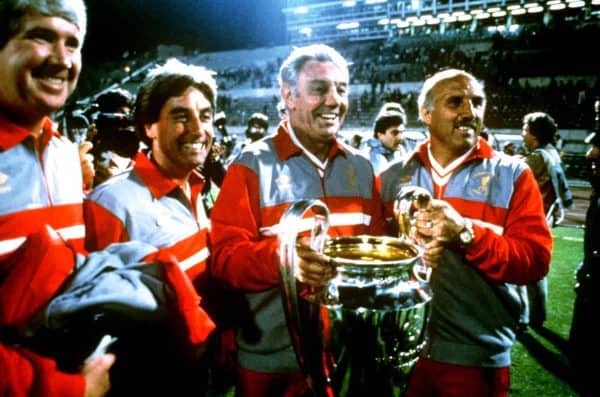
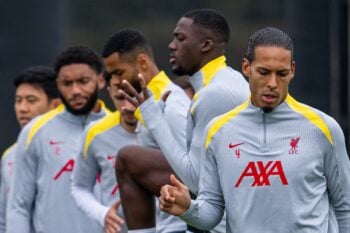
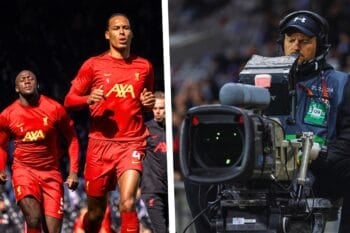

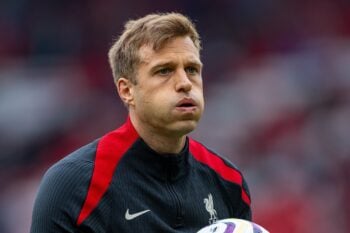
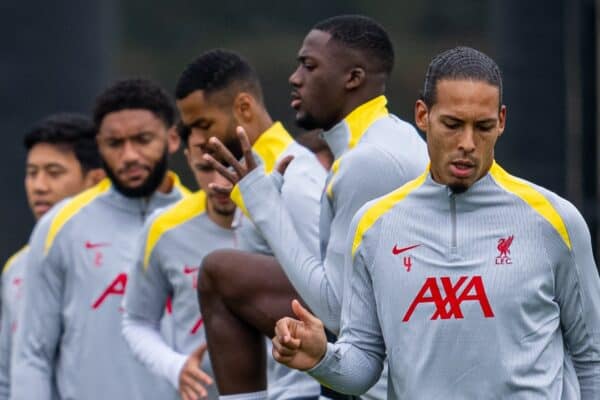
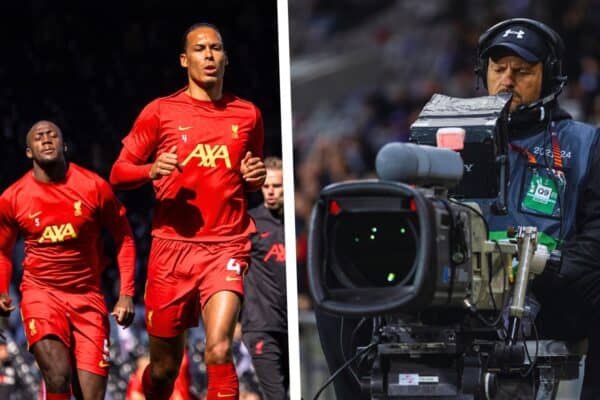
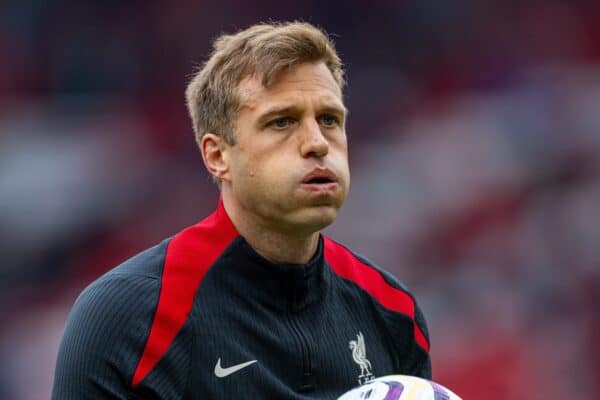


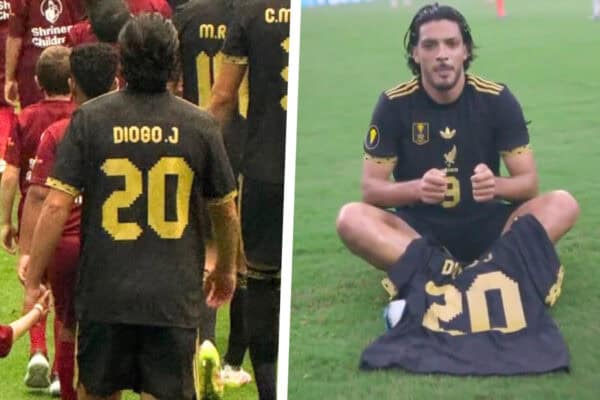
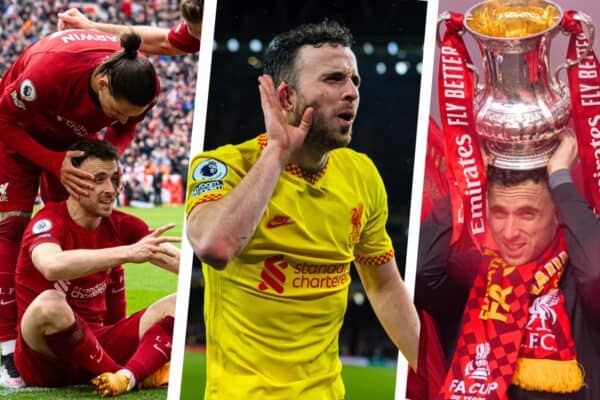
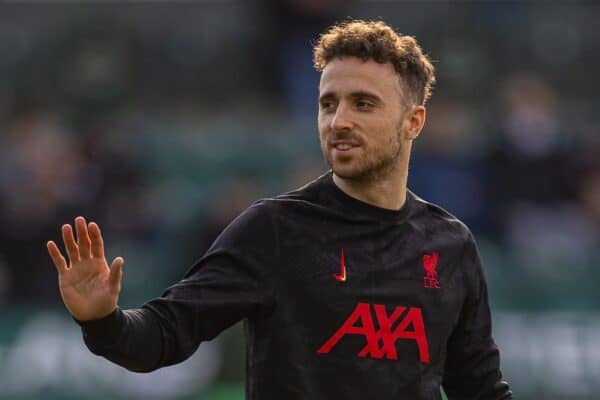



Fan Comments